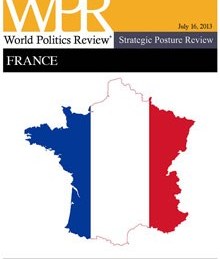
Last month, the European Union renewed the mandate of the European Network and Information Security Agency, its principal cybersecurity agency, giving it expanded responsibilities. In an email interview, Alexander Klimburg, a fellow at the Austrian Institute for International Affairs specializing in cybersecurity as well as EU foreign and security policy, explained the state of EU cyberdefense and its role in EU-U.S. relations. WPR: How is responsibility for cybersecurity divided among EU member states and the institutions of the EU? Alexander Klimburg: In the EU Cyber Security Strategy, published earlier this year, the EU committed itself to all five of the […]















